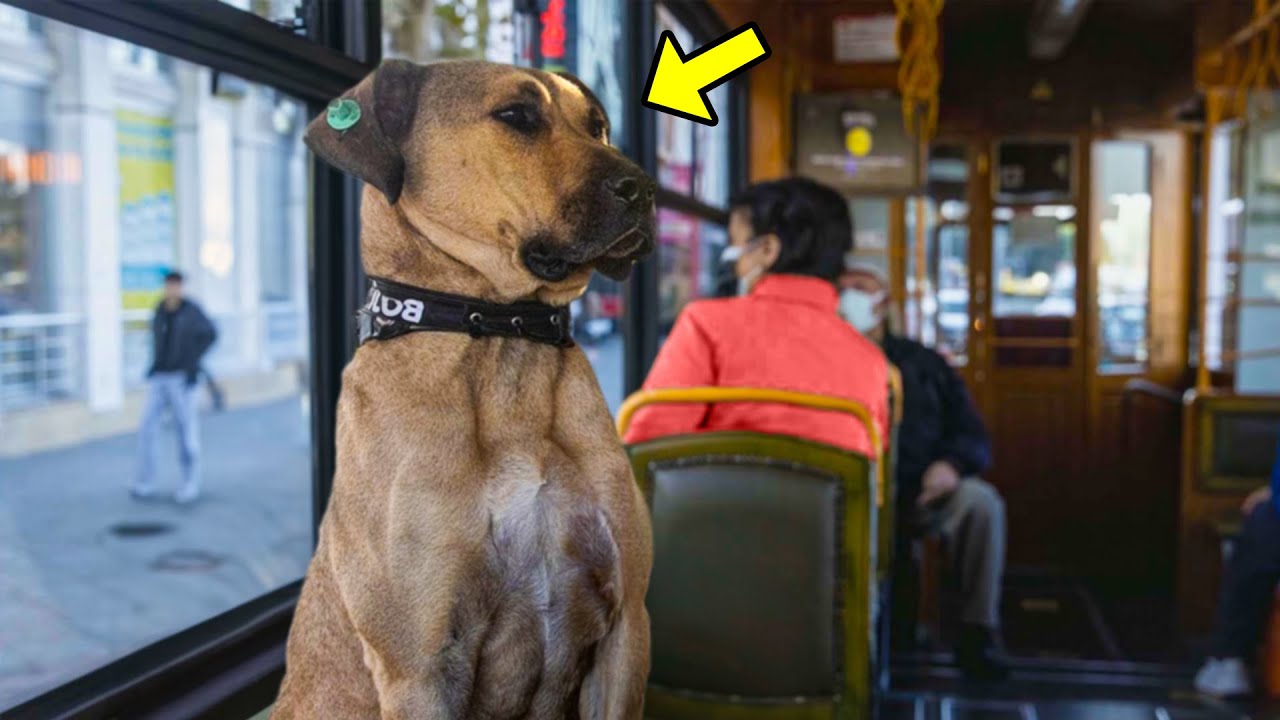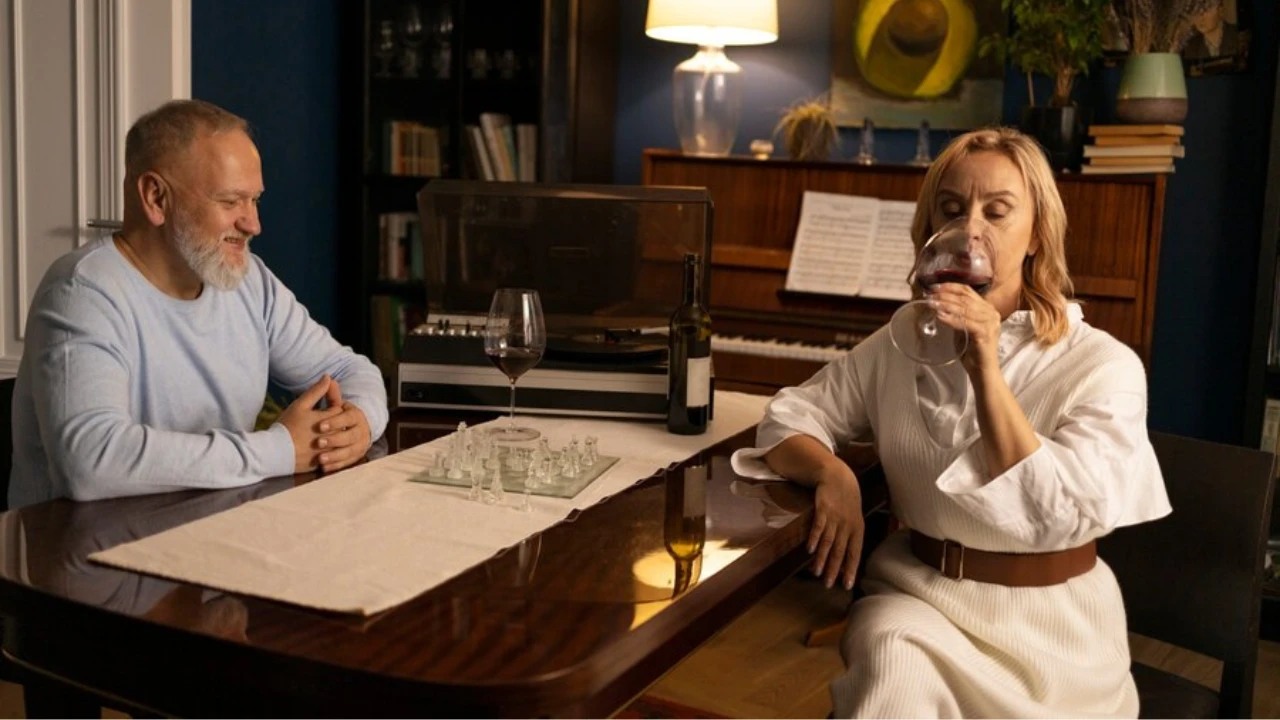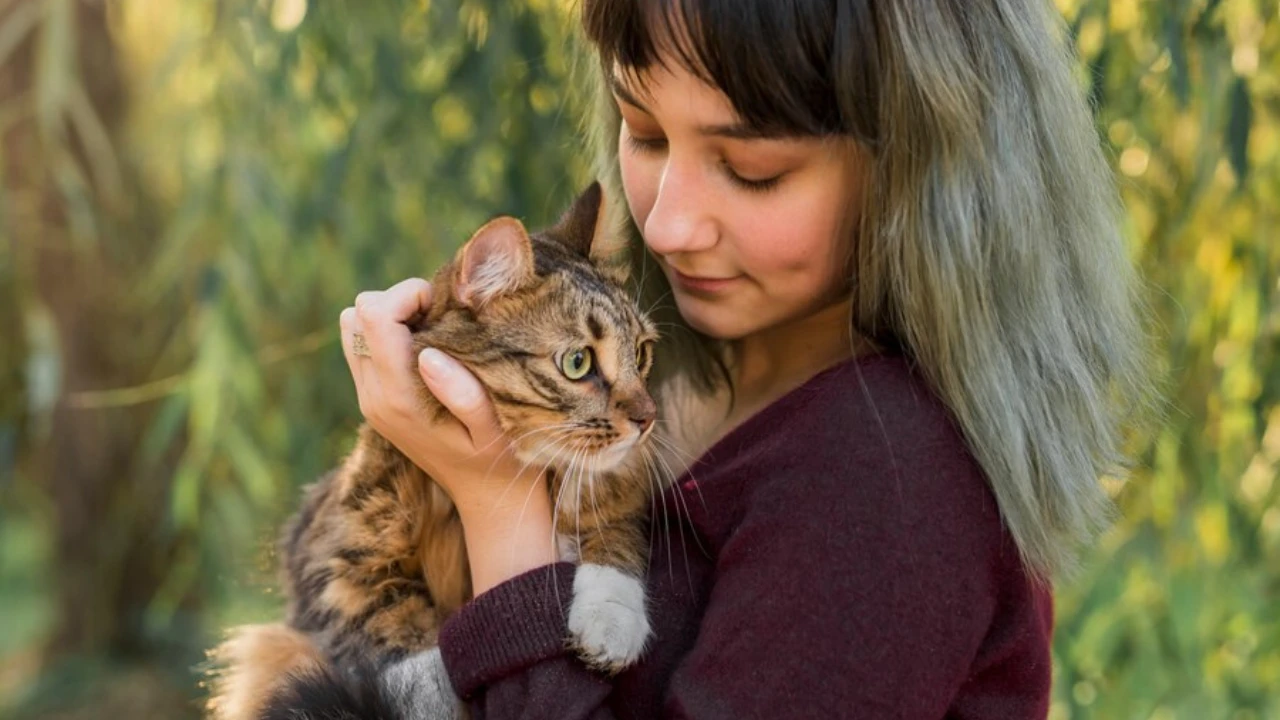Every day like clockwork, a dog appears at a subway station in Istanbul and slips onto a train. He travels unnoticed between stations day after day until a businessman starts paying attention. When he decides to follow the dog, he discovers a shocking reason for his behavior.
The Istanbul metro thrummed with its usual morning cacophony. Announcements crackled over the loudspeaker and footsteps pounded against the tiled floor. Amid the controlled chaos, a large, tall dog weaved through the crowd. This was Boi, an unlikely celebrity known across Turkey as the Urban Dog of Istanbul. Videos of him curled asleep on a Metro seat or patiently waiting at a tram stop had made him a beloved mascot of the city.
Omare Coach was a businessman whose gaze was usually honed on the sleek glass of his smartphone. But now, it snagged on the dog. He watched as Boi gently nuzzled against a child’s outstretched hand. Omare couldn’t shake an odd sensation of familiarity as he watched the dog climb onto a train. The uneasy feeling lingered as he resumed his commute, and just like that, the seed of curiosity was planted.
Days later, he found himself actively seeking out the sight of that dog who stirred a memory he couldn’t quite grasp. The rhythm of Boi’s days followed was as familiar as the metronome beat of the subway cars. He knew the cool marble of certain stations was optimized for a midday snooze in the dappled sunlight. He recognized the regular commuters. There was the kind woman with the crumb-filled purse who always shared her seat and the gruff man whose newspaper crackle signaled an empty seat. He loved the wide-eyed children who offered tentative pats on his head. Boi observed them all, a silent witness to the ebb and flow of life on the rails. Yet beneath the routine, an unspoken purpose guided his journeys.
Unlike the stray cats who staked out territories near food sources, Boi roamed restlessly. His roots weren’t random; they were a sprawling web across the city. Sometimes he’d linger at a specific station for hours, his ears perking as if he was listening for an unheard signal. Other times, he’d sprint from a departing train with an urgency that made passengers exchange curious glances.
Omare Coach found himself pulled into Boi’s orbit. He’d alter his schedule, board unlikely trams, and linger at stations far from his usual route. From a discreet distance, he studied the dog. Boi’s intelligence shone through in the way he navigated crowded trains. His demeanor was always calm amid the chaos, yet the purposefulness and the flickers of what seemed like yearning niggled at Omare, and the fascination deepened with each shared commute.
A question grew in his mind: Was this just a well-adapted stray, or was there a deeper, unseen story behind those watchful eyes? Omare needed to know.
Then things became twisted. Boi made the headlines, accused of soiling a tram seat. The newspaper screamed, photos circulated, and social media exploded. Some scoffed and called it a publicity stunt. Others declared it proof that even beloved animals could turn feral. A vocal minority demanded the dog be removed from the streets.
Amid the uproar, Boi vanished. Naturally, rumors swirled. An online petition demanding answers trended under the hashtag #WhereIsBoi. Omare followed the story with a sinking heart. The incident had sparked a disturbing realization: the dog’s newfound fame made him a target of both affection and malice.
Then came the twist. Istanbul Metropolitan Municipality released security footage from the date of the incident. The timestamp was clear: Boi was nowhere near the tram in question. Instead, the camera revealed a shifty-looking man placing something on the seat and then snapping a photo before melting into the crowd. The truth was undeniable: Boi had been the victim of a cruel smear campaign.
Public outrage followed with the force of a tidal wave. Support for Boi reached an all-time high. The mystery man was swiftly identified and faced a barrage of online shaming. The municipality issued a formal apology and promised increased measures to ensure Boi’s safety.
For Omare, however, the incident was more than a case of a cleared reputation. It was the confirmation of a fear he couldn’t shake: the streets of Istanbul, once Boi’s playground, were now a potential minefield. Questions stuttered in his mind: Why target an innocent dog? Was this an isolated act or the start of something more sinister?
Boi’s days unfolded against a backdrop of two realities: the vivid present of bustling Istanbul and the fading echoes of his life before. The fragments of his past occasionally surfaced like sudden flashes of light in his otherwise focused existence. He remembered the warmth of a sunlit living room, the scent of freshly baked bread, and a gentle hand ruffling his fur. A child’s laughter filled the air, high-pitched and infectious. Then the memory would twist in his mind. He heard tires screech, and the world tilted at an impossible angle. A beloved voice cried out in pain. In those moments, confusion and fear swallowed him whole. By the time the memory faded, Boi would often find himself at yet another familiar station. It made no logical sense, but his instincts whispered that the answer might lie behind one of these concrete platforms.
Omare, meanwhile, found his carefully constructed world starting to fissure. Each sighting of Boi chipped away at his composure. The dog’s unwavering focus, the fleeting glimpses of sorrow in those amber eyes—they all awakened a long-buried pain. As a child, he’d had a dog. It was a golden retriever named Pasha, the pup had been his best friend and constant companion until its untimely death in a car accident. Omare had pushed away the memory for years; it was too sharp a wound that never seemed to fully heal.
One crisp afternoon, Omare disembarked at a station outside his usual route. It was nondescript, nothing but a few shops and a scattering of apartment buildings. He strolled down the side street and spotted Boi curled up beneath a park bench. As he approached, Boi lifted his head, and Omare’s heart skipped a beat. The connection he’d sensed from the start had solidified into something more—an entwined destiny, perhaps. The desire to understand and to peel back the layers of Boi’s story wasn’t just curiosity anymore; it was a deep-rooted need.
He discreetly sought out a private investigator known for meticulous work. The instructions were clear: trace Boi’s movements and focus on the time before his rise to internet stardom. Days stretched into weeks. The investigator, a man named Deir, provided regular but unremarkable updates. The dog frequented a surprisingly vast area. The occasional grainy photo emerged—Boi sniffing around a trash bin or curled beneath a bridge on a rainy night. Yet, at the same time, a pattern emerged. Sightings seemed to cluster around a specific neighborhood, a working-class district Omare rarely ventured into.
Within that area, Deir found witnesses. A shopkeeper recalled feeding the big dog scraps for months. A woman remembered seeing him curled on a stoop. Then the breakthrough came. The investigator unearthed the police report from over a year ago. There was an accident at a busy intersection. A young boy was struck by a car, and in the witness statements was a brief, almost overlooked detail: a large brown dog was seen in the vicinity, and it appeared distressed.
The pieces fell into place with sickening clarity. The description matched Boi; the location was uncomfortably close to the park where Omare had found him. He felt a wave of nausea. Had this loyal, loving dog been waiting in vain all this time? Was his devotion to familiar stations an attempt to will his missing person back into existence?
Omare returned to the park bench. It took several afternoons of quiet vigilance before the dog reappeared. He approached cautiously, mindful of the dog’s weariness. He knelt and said, “Boi, it’s time to come home.” The dog watched him, ears perked in a mixture of hope and suspicion. This stranger exuded a familiar sadness, a shared vocabulary of loss. Still, Boi hesitated. The weight of his endless waiting was just too heavy to simply walk away from.
At that moment, there were no words, just the shared understanding of an irrevocably altered world. Omare adopted Boi, and the grand estate he called home no longer felt empty. The dog’s presence was both a comfort and a constant reminder of their shared history. Sure, there were still days when Boi would slip away to a familiar train station. Omare would follow to sit beside him on a bench, simply bearing witness. But as the man and the dog shared the bittersweet rhythm of their days, there was a quiet, undeniable truth: they had found each other amidst the wreckage. And perhaps that was enough.
It’s quite a touching story, isn’t it?






